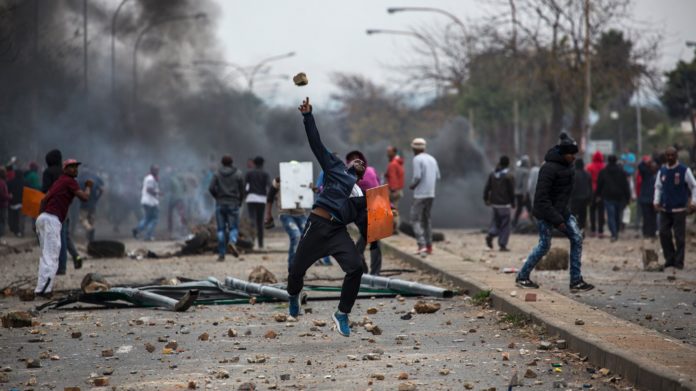
SOUTH Africa’s mining sector runs the risk of further community disruption owing to a deterioration in the performance of local government, said Neal Froneman, CEO of Sibanye-Stillwater.
“The state of the nation verges on a failed state,” Froneman said in an interview on March 3 following the group’s year-end results presentation. “Unemployment, inequality and poverty are the basic drivers of unhappiness.”
The company said it had experienced a lack of service delivery by municipalities at all of its mines in Gauteng, Free State and North West provinces where it operates gold and platinum group metal (PGM) mines.
“It’s real, it’s happening and it’s going to get worse,” Froneman said.
His comments back up a statement by Impala Platinum (Implats) CEO, Nico Muller in February who said on March 1 that activism in communities had increased both legitimately, from people wanting to create viable businesses, and illegitimately in the form of increased theft of copper cable from operating shallow shafts at Impala Rustenburg as well as illegal mining activities.
Muller added that the Covid pandemic exacerbated the failures of local government. It “… continues to be felt in constrained labour and skills availability” as well as “elevated absenteeism and heightened community dissatisfaction and lawlessness”.
Sibanye-Stillwater announced last week that it would pay a new stakeholder dividend equal in size to 1.5% of annual dividends to shareholders. This was in addition to committed social and labour plans.
“If we have to contribute to services to ensure we have smooth operating environment [then] we’ve made that decision,” Froneman said. “We have to take over what municipaiities do because it is just not sustainable. I can second what Implats says,” he added.
Errol Smart, CEO of Orion Minerals last year shone the light on the extent to which elements in society would go to extract economic benefits from mining companies, many of which operate in relativley undeveloped regions of the country.
Smart described protests by local community members near the firm’s Prieska Copper-Zinc Project in the Northern Cape province as “mafia-type behaviour” as they were seeking to pressure the company into awarding them contracts.
“The danger is that this kind of behaviour has become normal in South Africa,” Smart told BusinessLive. “What is scary for me is that when something like this happens CEOs phone each other for consolation and to share their experiences. This is how commonplace it has become,” he said.
“I wouldn’t label it as a [procurement] mafia,” said Muller last week of unrest near to the PGM mines in the North West province.
However he said that tempers among employees were being stoked by rival unions competing for members which is yet another factor contributing to economic tensions in the mining regions.










